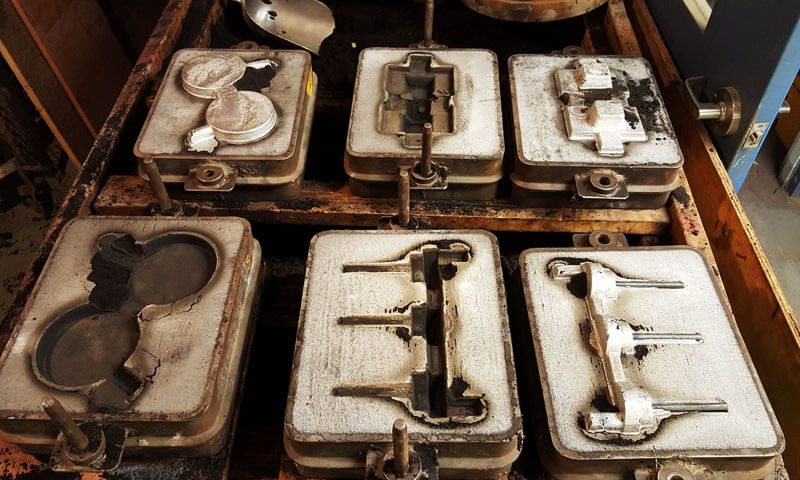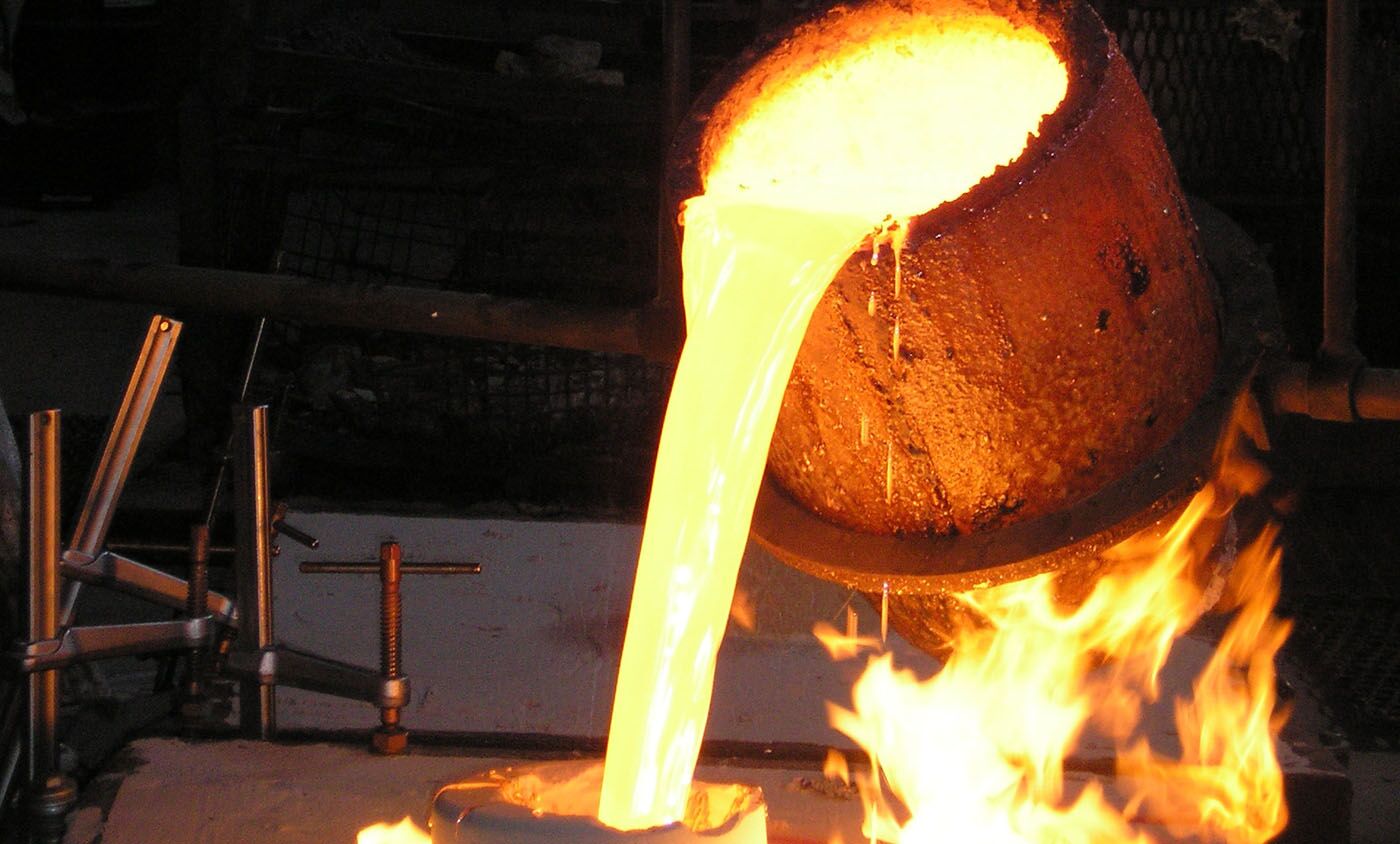Best Practices for Upkeep and Applications in the Aluminum Shop Field: A Thorough Review
Keeping devices in the aluminum shop market is important for operational success. Regular assessments and predictive maintenance can considerably minimize downtime and boost safety. Advanced technologies, such as IoT and data analytics, play a crucial role in this process. Nevertheless, comprehending the full range of finest methods calls for a more detailed assessment of certain strategies and their effects on performance. What are the vital elements that add to a reputable upkeep framework?
Significance of Routine Maintenance in Aluminum Foundries
Regular upkeep plays an essential duty in the reliable operation of light weight aluminum shops. By systematically servicing and examining tools, shops guarantee peak performance and durability of equipment. Regular upkeep activities, such as cleansing, part, and lubrication replacement, assistance protect against unanticipated break downs that can lead to costly downtime.
In addition, regular checks enhance work environment safety and security by identifying potential risks before they intensify into significant concerns. Equipment that is properly maintained runs better, bring about improved product quality and lowered waste. Furthermore, adherence to an organized upkeep schedule can support compliance with industry guidelines, thereby fostering a track record for dependability and quality within the market.
Carrying Out Predictive Upkeep Strategies
Anticipating maintenance techniques take the principles of regular upkeep a step additionally by leveraging data analytics and progressed surveillance modern technologies. In aluminum foundries, these strategies make it possible for operators to expect devices failings prior to they take place, thereby minimizing unexpected downtimes and enhancing functional efficiency. By using sensing units and IoT tools, real-time information can be collected on equipment efficiency, permitting the recognition of potential concerns through predictive analytics.
Maximizing Melting and Pouring Procedures
Reliable melting and pouring processes are crucial for optimizing performance and guaranteeing the quality of aluminum spreadings. To boost these processes, foundries must concentrate on precise temperature level control throughout melting, as this straight influences the metallurgical properties of the alloy. Making use of innovative melting technologies, such as induction and resistance melting, can boost energy effectiveness and lower cycle times.
Implementing automated pouring systems minimizes human error and preserves consistency in the pouring procedure. Correct mold prep work, consisting of ample preheating, is important to prevent thermal shock and enhance mold durability.

Enhancing Safety And Security Procedures in Factory Procedures
Focusing on security in light weight aluminum shop operations is crucial for protecting employees and assuring an efficient environment. Reliable safety procedures consist of routine training sessions that highlight the value of personal safety equipment (PPE), such as headgears, gloves, and goggles. Additionally, the facility of clear emergency treatments is necessary in managing prospective accidents.
Routine examinations of tools and machinery aid recognize hazards before they view publisher site intensify into severe issues. Executing a durable coverage system motivates employees to interact safety and security problems without fear of effect. Furthermore, promoting a culture of safety assurances that every staff member comprehends their function in preserving a protected work environment.
On top of that, ensuring proper air flow and monitoring air quality can reduce exposure to hazardous fumes and dirt. By reinforcing these methods, aluminum factories can considerably minimize the danger of mishaps and produce an atmosphere where staff members feel valued and risk-free, ultimately boosting total operational effectiveness.
Leveraging Modern Technology for Improved Effectiveness
Using sophisticated innovation has come to be progressively important for light weight aluminum foundries aiming to improve operational efficiency. Automation and robotics play a vital function in enhancing production procedures, decreasing labor expenses, and reducing human mistake. Carrying out real-time tracking systems permits the continual evaluation of tools performance, allowing proactive maintenance and decreasing downtime.
Additionally, the assimilation of data analytics supplies useful understandings right into functional process, assisting in better decision-making and resource appropriation. Predictive analytics can identify prospective failings before they occur, more enhancing maintenance timetables.
Furthermore, taking on innovative melting and spreading innovations boosts energy performance and material return, which are basic for sustainability in the industry. By welcoming these technological advancements, aluminum shops can not only improve productivity but likewise preserve a competitive side in a significantly demanding market (Aluminum Casting). Ultimately, leveraging technology is essential in driving development and enhancing overall functional efficiency within the market

Regularly Asked Inquiries
What Prevail Indications of Tools Use in Light Weight Aluminum Foundries?
Typical signs of devices wear in light weight aluminum factories include unusual sounds, decreased performance, boosted vibration, overheating parts, leakages, and visible corrosion. These indicators commonly signal the need for upkeep or potential replacement to stay clear of pricey downtime.
Exactly How Can I Train Personnel for Effective Upkeep Practices?
To educate personnel for effective upkeep techniques, one can implement hands-on workshops, establish complete handbooks, urge mentorship programs, and carry out regular assessments to review abilities and knowledge, ensuring all employees recognize maintenance protocols completely.
What Are the Environmental Laws for Light Weight Aluminum Foundries?
Aluminum factories are my review here subject to various ecological guidelines, including emissions control, waste administration, and resource preservation. Compliance assurances very little ecological influence, advertising sustainability while sticking to neighborhood, national, and international ecological criteria and laws.
How Do Foundries Take Care Of Waste and Recycling of Aluminum?
Foundries handle waste and recycling by applying systems for accumulating scrap light weight aluminum, utilizing sophisticated separation modern technologies, and collaborating with reusing centers to ensure efficient recovery processes, thereby decreasing environmental influence and advertising sustainability within the sector.
What Are the Prices Connected With Applying Advanced Technologies?
Carrying out advanced technologies in factories incurs significant costs, including first investment, training, and maintenance expenditures. The long-lasting advantages, such as boosted effectiveness and reduced waste, frequently justify these expenditures, leading to enhanced profitability. (Aluminum Casting)
